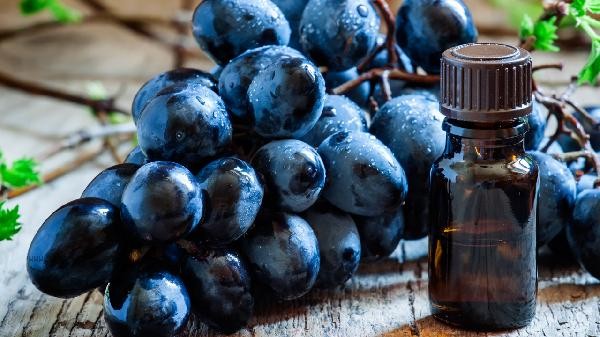Grape juice is not suitable for patients with diabetes, those with weak gastrointestinal function, patients with kidney disease, those with allergies and those taking specific drugs. Grape juice has a high sugar content, which may exacerbate blood sugar fluctuations; Its acidic components may irritate the gastrointestinal mucosa; The high potassium characteristic may increase the burden on the kidneys; Some people may be allergic to grape ingredients; Some medicinal ingredients may interact with grape juice.

I. Grape juice of patients with diabetes
contains a lot of natural fructose and glucose, with a high glycemic index. After drinking, diabetes patients are easy to cause rapid rise in blood sugar, which is not conducive to blood sugar control. Especially concentrated grape juice has a higher sugar content, which may induce blood sugar fluctuations. It is recommended to choose low sugar fruit juice and strictly control the intake.
2. Patients with weak gastrointestinal function
Organic acids and tannic acid in grape juice may stimulate the gastric mucosa, exacerbating the symptoms of gastritis and gastric ulcer patients. The low-temperature stimulation of refrigerated grape juice may cause gastrointestinal spasms, leading to abdominal pain and diarrhea. People in the recovery period after gastrointestinal surgery should avoid drinking acidic fruit juice.
III. Kidney disease patients
Grapes are rich in potassium, with a potassium content of over 100 milligrams per 100 milliliters of grape juice. People with renal insufficiency have a decreased ability to excrete potassium, which may lead to hyperkalemia and the risk of arrhythmia after consumption. Dialysis patients need to pay special attention to controlling the intake of high potassium foods.

4. People with allergies
Grapes contain salicylates and certain protein components, which may cause allergic reactions. Symptoms include itching in the mouth, redness on the skin, and difficulty breathing. People who are allergic to pollen or berry fruits are more likely to experience cross allergic reactions.
V. Special populations taking medication
Grape juice may affect the activity of some drug metabolizing enzymes, such as antihypertensive drugs calcium channel blockers, anticoagulant drugs warfarin, etc. Its components can interfere with the breakdown of drugs in the liver, leading to abnormal increases or decreases in blood drug concentration. During the use of the above-mentioned medications, dietary taboos should be consulted with a physician.

It is recommended for healthy individuals to choose freshly squeezed grape juice and avoid concentrated juices with added sugar. The daily intake should be controlled within 200 milliliters, preferably consumed in portions and not eaten with meals. Rinsing mouth promptly after drinking can reduce the erosion of dental enamel by acidic substances. Individuals with special physical conditions can dilute grape juice and try a small amount to observe their body's reaction. Individuals with chronic diseases or taking medication should prioritize following medical advice to adjust their dietary structure.









Comments (0)
Leave a Comment
No comments yet
Be the first to share your thoughts!